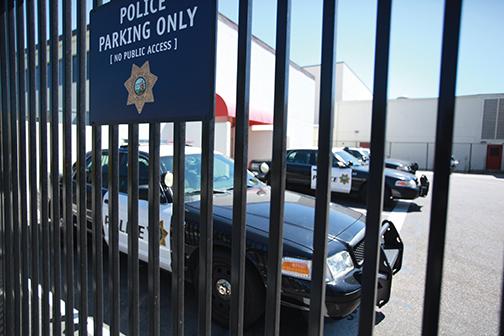On Feb. 27, the San Diego City Council voted to approve a plan that would fund approximately $2 million to buy clip-on cameras for police officers to wear on their uniforms. For the public, this was supposedly a well-deserved response to the high profile cases of two police officers who allegedly sexually assaulted women in their custody. The cameras were introduced as a measure to record police misconduct and protect police from “false or overstated claims.” However, with these clip-on cameras, the police department thinks it has targeted the issue and eradicated it. In reality, they have completely missed the point.
A clip-on camera, as simple as the device is, sends a distressing statement from our law enforcement. By enforcing mandatory cameras on police uniforms, they’re essentially telling us they can’t trust the supposed men and women of justice in our area. If the City Council can’t trust the police, then how are we supposed to?
The very foundation of the law in this country lies in the hands of the police. Whether we like it or not, the police help keep our country running the way it should be.
However, the rising public awareness of police corruption has us wavering in our support for a system which allows the law enforcers to take advantage of this position.
As of 2011, there are 15 percent more accusations of sexual assault from male law enforcers than the general male populace. Statistics such as these and the enforcement of cameras leave us, the people, questioning the integrity of the police.
When the bigwigs of our country have to resort to cameras to control our law enforcement, our future is beginning to look a little more dystopian than we would like it to be. It’s the frightening future of high-surveillance police forces, imagined in “1984,” “Fahrenheit 451” and even “The Hunger Games,” which now seem like a plausible reality for our nation.
The cameras also introduce the issue of the conflict between security and privacy. With surveillance cameras, webcams and even traffic cameras prone to monitoring our every move, we are sacrificing our right to privacy for the sake of security.
In an age of tracking devices, security cameras and the National Security Agency, we subject ourselves to exposure by just going outside. At any given moment, we are under watch. As it is now, there are more than three million cameras in operation today, recording around four billion hours of footage a week.
At what point does surveillance technology cross the line between security and infringing upon our right to privacy? With the introduction of cameras on police uniforms, privacy becomes a luxury we can no longer afford.
As a result, the cameras do more to focus on the issues in our society regarding law enforcement and surveillance, rather than eradicate them.
What the police department needs to realize is that the problem cannot be erased by monitoring the problem, but it needs to be erased by centering in on the problem. The actions of a few police reflect the integrity of the many. The police department needs to start a dialogue among its policemen about the integrity of their jobs and their necessary role in sustaining order in our society.
Offering cameras as a solution is admitting that corruption existed in the past and the only way to deal with it is to hold the police accountable for their actions.
As of Feb. 15, seven women have come forward to accuse the alleged officer of sexual abuse. If it wasn’t for the first woman who stepped up against police corruption, justice may have never been served and police corruption would have remained in the shadows, never to come to light.
Police enforcement is a necessary part of our society. However, when people in authority abuse their power, it’s up to us to unleash a dialogue about it and change the integrity of the police force.












